Did you know that more than 85% of households worldwide keep a box of baking soda in their kitchen or bathroom cabinet—but most people only use it for baking or to deodorize the fridge? The truth is, this humble white powder hides countless secrets that can make your daily life easier, healthier, and even more affordable.
What if I told you that baking soda can help clean stubborn stains, soothe discomfort, freshen your breath, and even support your skincare routine? Generations before us relied on baking soda as a natural go-to for dozens of everyday problems. Yet, in modern times, many of these time-tested tricks have been forgotten.
In this article, we’ll uncover five powerful and practical baking soda uses you probably never thought of. They’re easy, budget-friendly, and can save you from spending money on expensive products. By the end, you’ll understand why this pantry essential deserves a permanent spot in your daily routine.
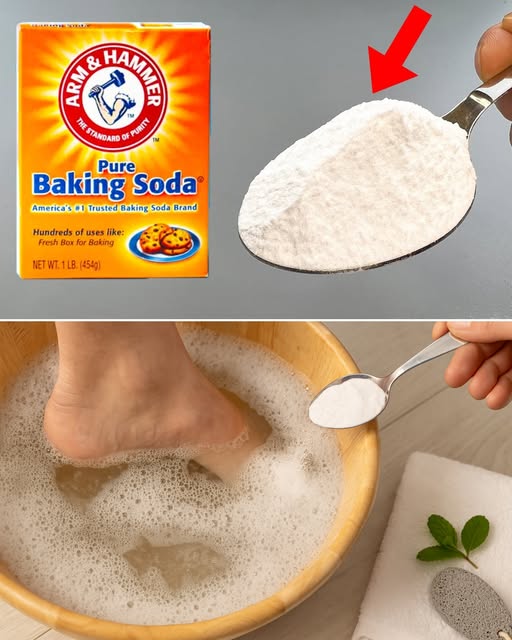
Trick #1: A Natural Cleaner That Works Wonders
One of the best-known but still underestimated uses of baking soda is as a natural cleaner. Its mild abrasive quality makes it ideal for scrubbing surfaces without scratching them.
How to Use It
- Sprinkle baking soda directly onto a damp sponge to clean sinks, counters, and stovetops.
- Mix 3 tablespoons of baking soda with 1 cup of warm water for an all-purpose spray.
- Add a few drops of lemon juice for extra freshness and antibacterial benefits.
Why It Works
Baking soda is alkaline, which means it neutralizes acids and cuts through grease effectively. Unlike many chemical cleaners, it’s safe to use around children and pets, making it a healthier household option.
Case in point: A family in Texas reported switching to baking soda cleaning to avoid harsh chemicals due to their toddler’s allergies. Within weeks, they noticed fewer flare-ups and a fresher home environment.
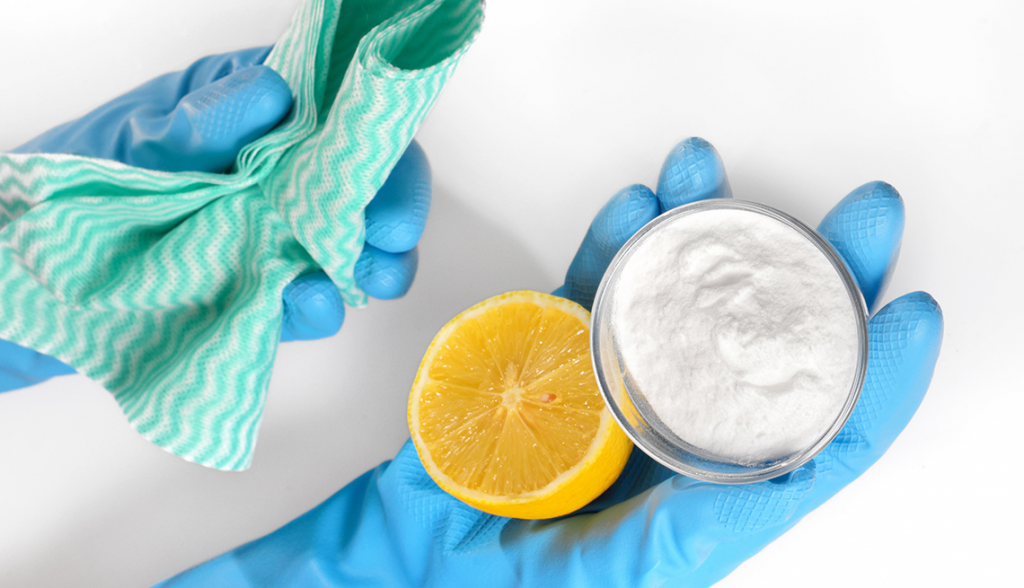
Trick #2: Freshen Breath and Support Oral Health
Bad breath affects nearly 1 in 4 adults at some point in their lives. Instead of relying on costly mouthwashes filled with artificial ingredients, baking soda can be a simple and effective solution.
How to Use It
- Mix ½ teaspoon of baking soda in a glass of warm water.
- Swish in your mouth for 30 seconds, then spit out.
- Do this 2–3 times per week.
Why It Works
Baking soda helps neutralize acids that cause bad breath and supports a balanced oral environment. It also gently whitens teeth by removing surface stains.
Tip: While occasional use is safe, avoid overuse since baking soda can be too abrasive if used daily as toothpaste.
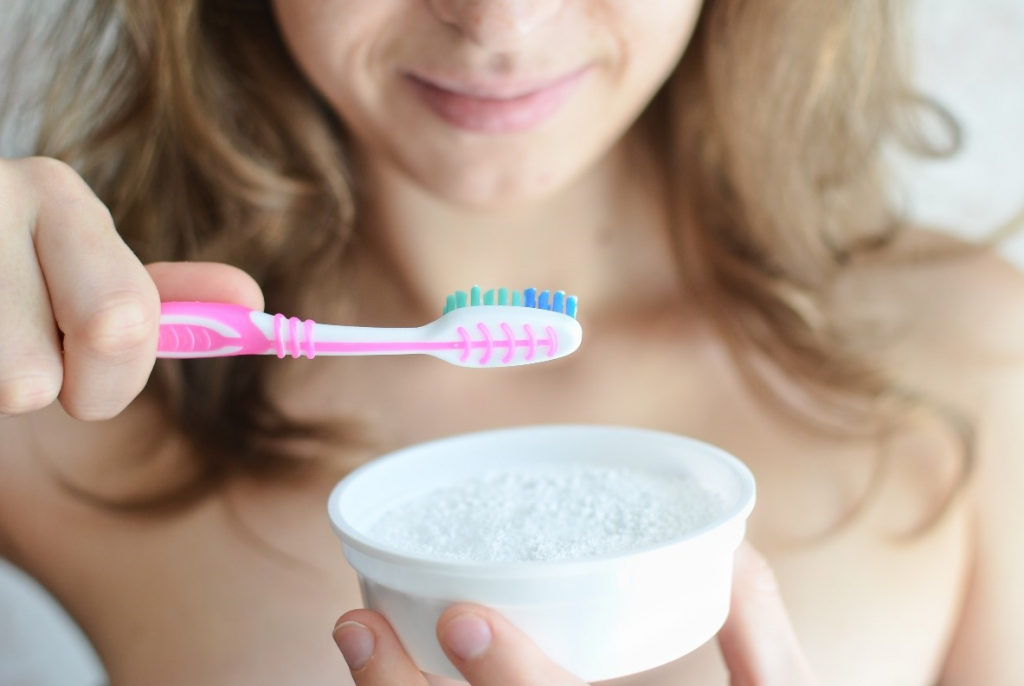
Trick #3: A Soothing Skin Remedy
Baking soda has long been used as a home remedy for minor skin irritations, from insect bites to mild rashes. Its alkaline properties can help calm itchiness and provide relief.
How to Use It
- Mix baking soda with a small amount of water to form a paste.
- Apply to insect bites, minor rashes, or irritated skin.
- Leave for 10 minutes, then rinse gently.
Why It Works
The paste helps neutralize skin acidity and reduce inflammation. Some people even add ½ cup of baking soda to a warm bath to soothe overall body itchiness after a long day.
Example: An outdoor enthusiast in Florida shared that she keeps a small jar of baking soda paste in her camping kit. It has helped her handle mosquito bites and even mild sunburn during hikes.
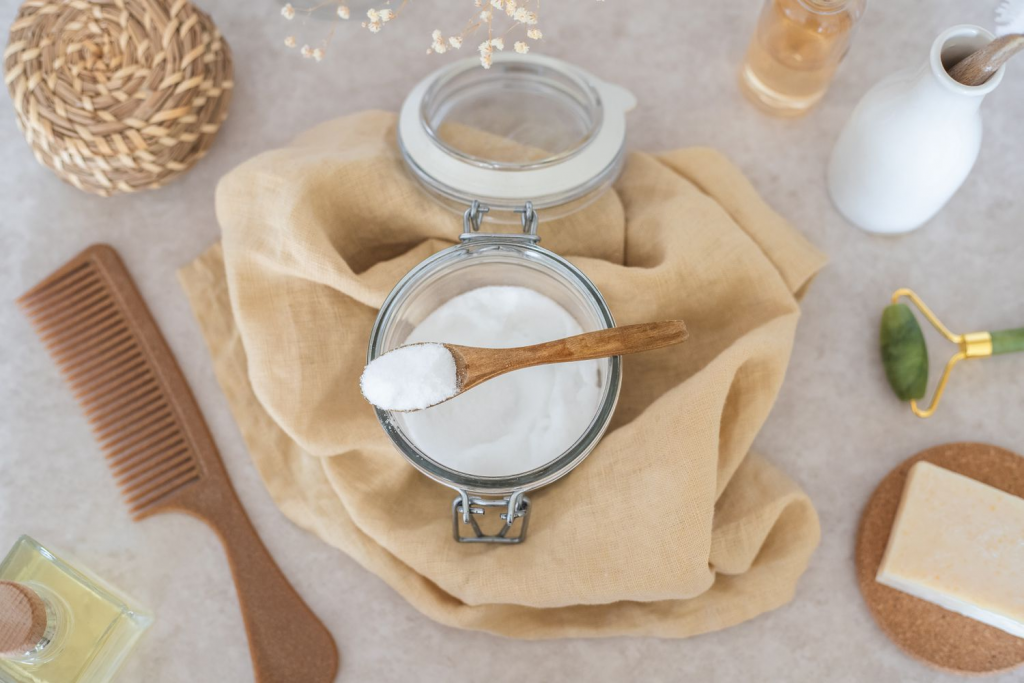
Trick #4: Eliminate Odors Instantly
From musty shoes to garbage bins, odors can make your home feel uncomfortable. Baking soda is a natural deodorizer that absorbs smells rather than masking them.
How to Use It
- Place an open box in the fridge or freezer to keep food odors at bay.
- Sprinkle baking soda inside shoes and leave overnight to freshen them.
- Add ½ cup to laundry to neutralize sweaty or musty smells in clothes.
Why It Works
Baking soda captures odor molecules and balances pH levels, making it more effective than many commercial air fresheners.
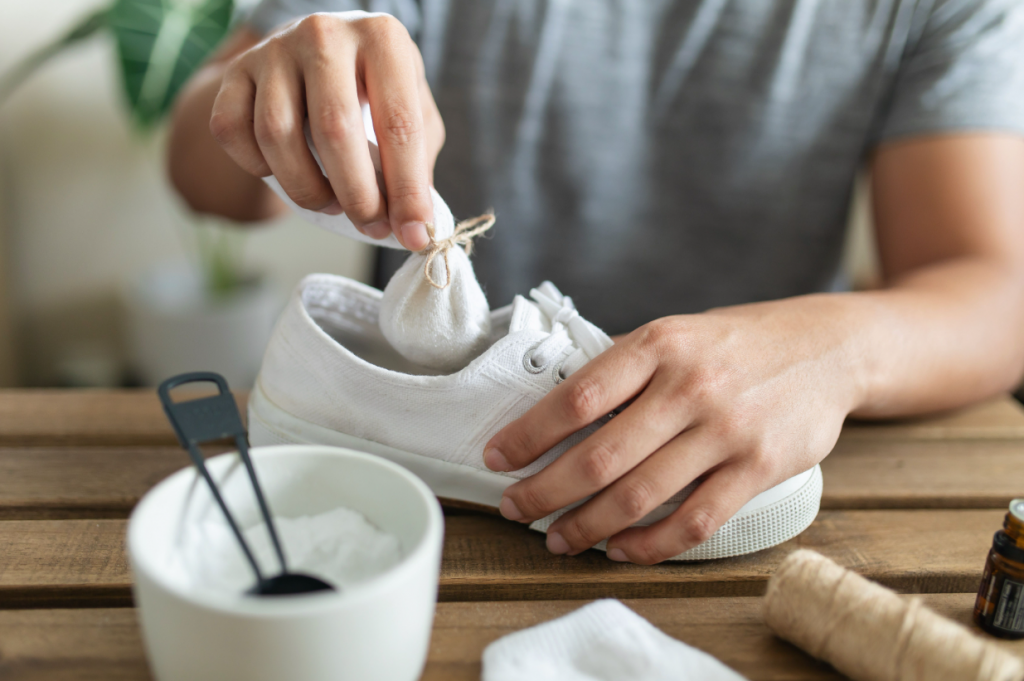
Trick #5: Support Digestive Comfort
Indigestion and heartburn are common, especially after heavy meals. Baking soda water has been traditionally used as a home remedy for occasional digestive discomfort.
How to Use It
- Dissolve ½ teaspoon of baking soda in 4 ounces of water.
- Sip slowly after a heavy meal if you feel heartburn or acid reflux.
Why It Works
Baking soda neutralizes stomach acid, providing temporary relief. However, it should be used occasionally and not as a long-term solution. People with high blood pressure or on a low-sodium diet should consult their doctor before trying this method.
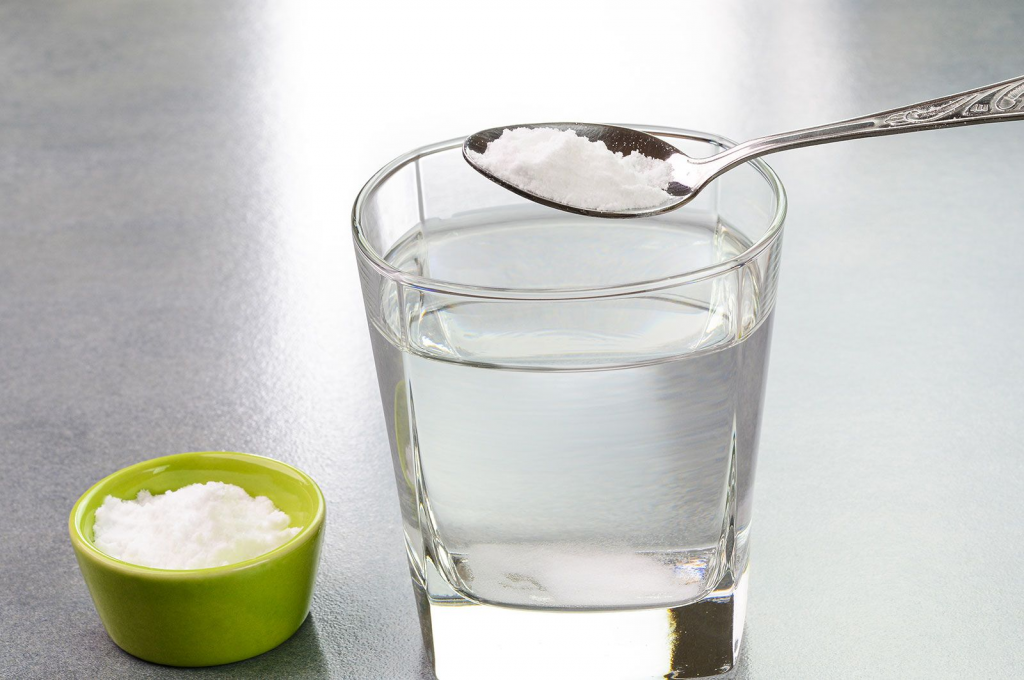
| Baking Soda Trick | How to Use It | Best Benefit |
|---|---|---|
| Natural Cleaner | Scrub surfaces or spray solution | Removes grease & stains |
| Oral Freshener | Mouth rinse 2–3 times per week | Reduces bad breath |
| Skin Remedy | Paste or bath soak | Soothes irritation |
| Odor Eliminator | Shoes, fridge, laundry | Neutralizes smells |
| Digestive Comfort | Small water mixture | Relieves occasional heartburn |
Conclusion
Baking soda is more than just a baking ingredient. From freshening your breath and soothing your skin to cleaning your home and even helping digestion, this natural powder proves its versatility every day. Simple, inexpensive, and widely available, it deserves a permanent spot in your home toolkit.
FAQ
Q1: Can I use baking soda daily on my teeth?
No, daily use may be too abrasive. Limit to a few times per week.
Q2: Is it safe to drink baking soda water regularly?
It may provide occasional relief, but frequent use can raise sodium levels. Always consult a healthcare provider before regular use.
Q3: Does baking soda expire?
Yes. While it doesn’t spoil like food, it loses effectiveness over time. Check the expiration date on the package.
Q4: Can baking soda replace all cleaning products?
Not entirely. It’s excellent for many tasks but not a disinfectant against all bacteria or viruses.
Q5: Is baking soda safe for children?
Yes, for external use like cleaning or deodorizing. For internal use, consult a pediatrician first.
*Disclaimer: This article is for informational purposes only. It does not replace medical advice, diagnosis, or treatment. Always consult your healthcare professional before making health-related decisions.




